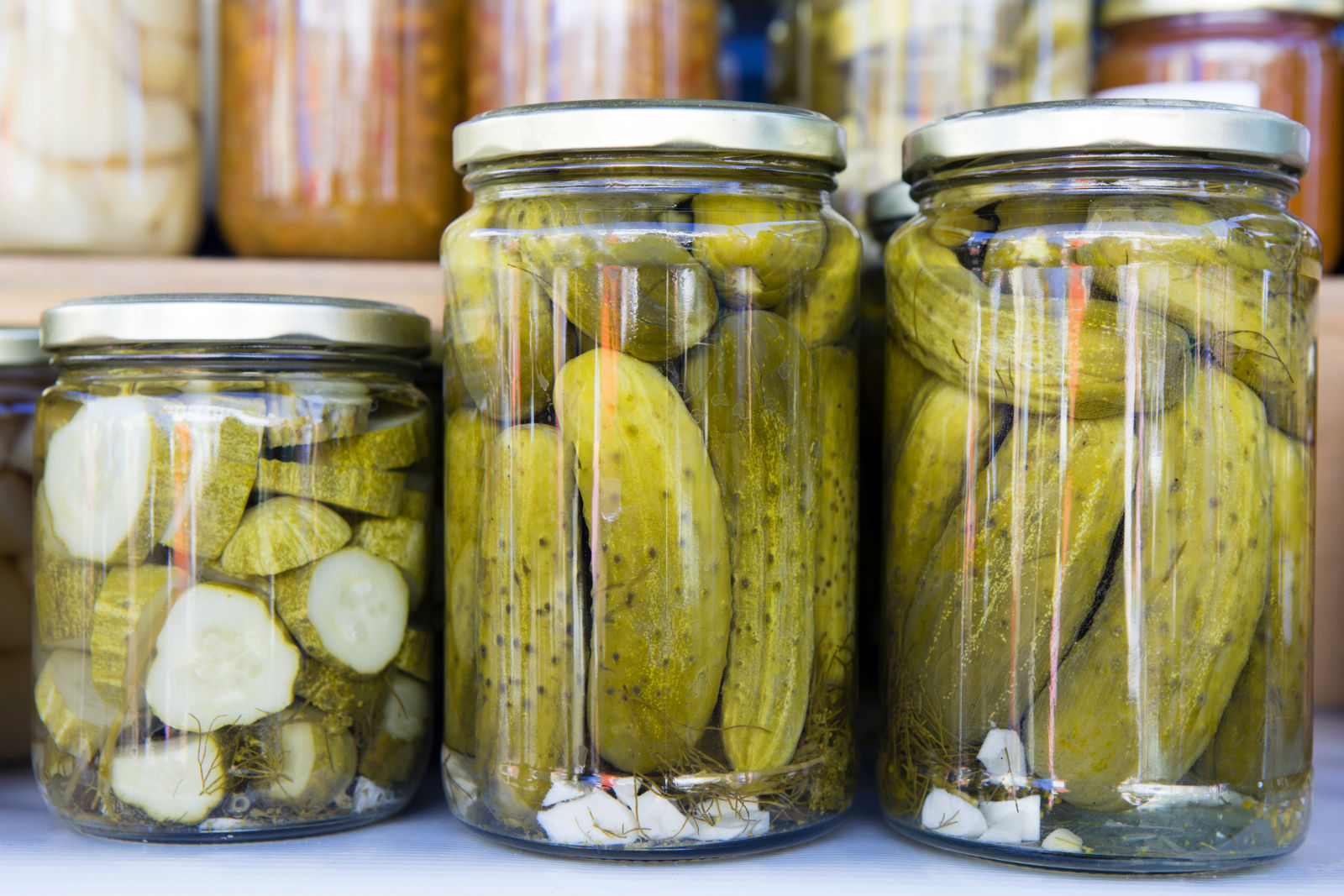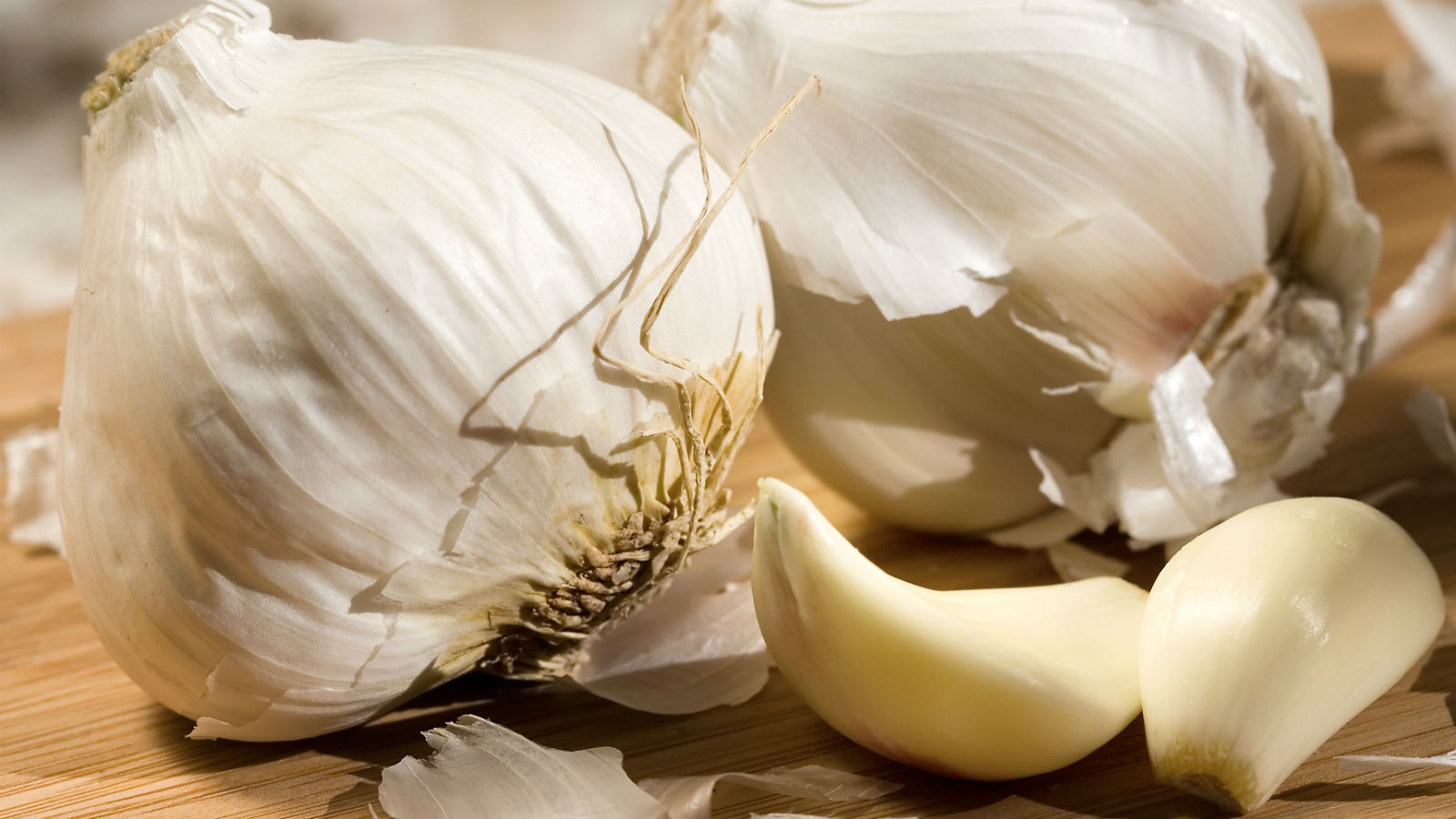Jews love garlic. Proof of the affinity for this odorous allium can be found in myriad Jewish recipes, from spicy Yemeni hilbeh to classic Ashkenazi kosher dill pickles, to even a Spanish Jewish eggplant dish from 13th-century Andalusia. While garlic is undoubtedly the MVP of the Jewish cooking game, the connection between this stinky bulb and the Jewish people goes far beyond the culinary – why else would the ancient Romans dub the Jews “garlic eaters”? Yet where and why did this love for the pungent aromatic begin?
Conveniently, we can turn to that most trustworthy of Jewish texts, the Torah, for some answers. During a particularly fraught moment of a generally challenging 40-year desert residence, the ancient Israelites complain to Moses. Why? Because they’ve grown tired of the manna God has sent them and they miss “the fish [they] used to eat freely in Egypt, the cucumbers, the melons, the leeks, the onions, and the garlic.” (Numbers 11:5) This verse offers a critical clue: that for the ancient Israelites, garlic was not only the key ingredient to a delicious dish, but was also central to the concept of a good life – that being the one they had left behind in Egypt.
Garlic wasn’t just a favorite of our wandering ancestors, but our Talmudic commentators, too, proved to have a passion for the piquant vegetable. As John Cooper explains in Eat and Be Satisfied: A Social History of Jewish Food, garlic was considered so central to the Jewish diet that “third century rabbis in Babylonia drew a distinction between garlic and leek, which were regarded as necessities, and other vegetables such as the radish and beet, which, unless they were cooked properly, could be deadly.” Garlic was not only regarded as essential to everyday Jewish cooking but also considered critical to the proper observance of Jewish holidays. When asked how one should delight in the Sabbath, Rav Yehuda’s answer comes in no uncertain terms: “with a dish of beets, and large fish, and heads of garlic.” (Shabbat 118b:2) More than a mere flavor enhancer, garlic played key role in the Jewish ritual observances fundamental to Jewish identity.

The Nosher celebrates the traditions and recipes that have brought Jews together for centuries. Donate today to keep The Nosher's stories and recipes accessible to all.
Yet enhance flavor it did: Garlic existed as the standby ingredient of the Jewish culinary repertoire throughout the ages, adding oomph to even the poorest of dishes. Hasia Diner, in Hungering for America, tells of “Norman Salsitz, who grew up after World War I in the town of Kolbuszowa in Poland” and “described his mother’s ‘false soup,’ garlic or onion in boiling water.” Given the often-poor diets of Jewish communities, especially those of Eastern Europe, the spicy tang of garlic offered a break in the monotony of meals of black bread, potatoes and occasional dairy products, often existing as the singular vegetable-like substance for shtetl dwellers.
The generous addition of garlic to dishes, however, signaled more than mere gusto. Gil Marks, in the “garlic” entry of his Encyclopedia of Jewish Food, points out that “historically, the addition of garlic was among the typical Jewish touches that enhanced local dishes.” Simply put, garlic made the difference between a Jewish and non-Jewish dish, a special marker for an ever-roaming and relocating people without a terroir fully their own. This belief of the garlic’s “Jewishness,” though, wasn’t limited to Jewish communities; garlic was widely acknowledged to be Jewish by non-Jews as well. The reason being, as Benjamin Wurgraft sums up, “the belief that Jewish bodies exude a foul odor, the Foeter Judaicu was common among medieval Europeans.” The Jewish gusto for garlic didn’t seem to dispel this stereotype, either. Perhaps the best pictorial proof of this medieval perspective is an image of a Jew from 15th century Worms: In one hand he holds a garlic root; in the other, a bag of money. The official court historian of the 15th century Catholic monarchs, Andrés Bernáldez, even cited this bad smell as justification for the monarchs’ expulsion of the Jews from Spain. To Bernáldez, the Spanish Jewish love of the bulb proved them to be “gluttons, who never stopped eating onions and garlic fried in oil,” the smell of which displeased Bernáldez even more. To him, garlic fried in oil had the smell of “the unbaptized” and represented reason enough for their expulsion. In Spain, this disdain for the allium and the people who most used it could even prove fatal: Even the scent of cooking garlic wafting from a window was considered enough evidence for prosecution by the Inquisition.
It isn’t clear if the “bad smell” associated with Jews was the pungent after-smell of garlicky meals or unrelated to garlic. Yet, even four centuries later in Poland, Ashkenazi Jews were associated with the smell of garlic. Later in her book, Hasia Diner tells the story of how “Beatrice Baskerville, who spent eight years in Poland and published her impressions of Jewish life there in 1908, commented on the overwhelming smell and use of garlic…on the Jewish tables.” Garlic, both in sight and smell, also marked Jews in less than complimentary ways. Upon arrival to America, too, this allium affinity and its marked odor offered obstacles to assimilation – a statement to which my grandmother’s experience can attest. One day in elementary school, her teacher sent home a note to my great-grandmother, asking her to stop feeding my grandmother the garlic-laden Romanian fare she prepared for lunch, because she found the smell distracting to the other students.

Despite the negative connotation of garlic stench, though, the Jewish love of garlic also offered positive reinforcement of Jewish identity. This is reflected in the wealth of Jewish wisdom, like the Yiddish expression az men est nisht kayn knobl, shtink men nit. In English: If you don’t eat garlic, you won’t smell bad. Meaning: If you’re a truthful person, you have nothing to hide. Sephardic Jews ward off the evil eye with garlic, exclaiming al ajo ke se le vaiga, or “let it go to the garlic!” – a play on the linguistic similarities between ojo, the Judeo-Spanish word for “eye” and ajo, meaning “garlic.” Just as garlic added flavor to a dish, so, too, did the bulb’s symbolic value enrich the Jewish spirit.
Perhaps therein lies the real reason for Jews’ love of garlic: more than just a flavorful addition to a dish, it is the key clove of Jewish identity.



